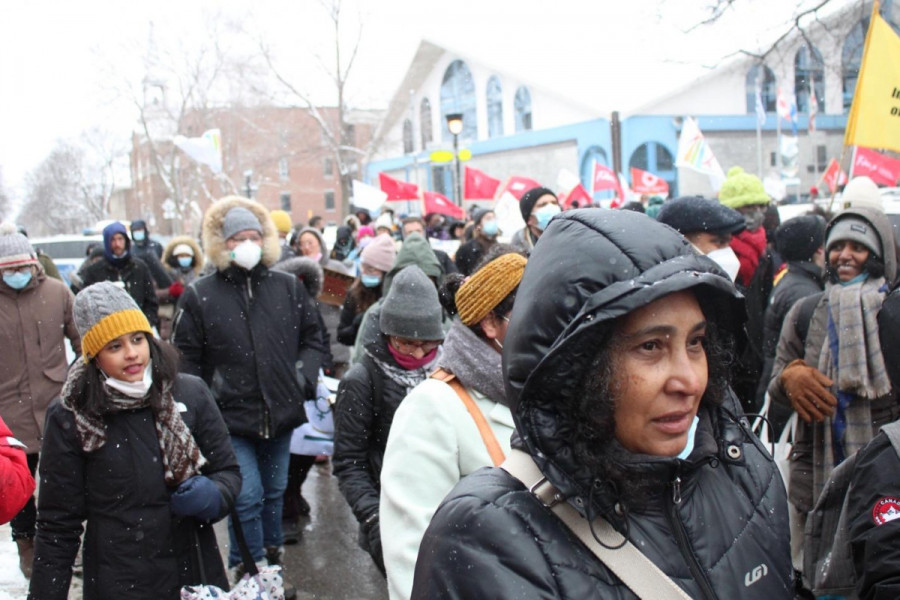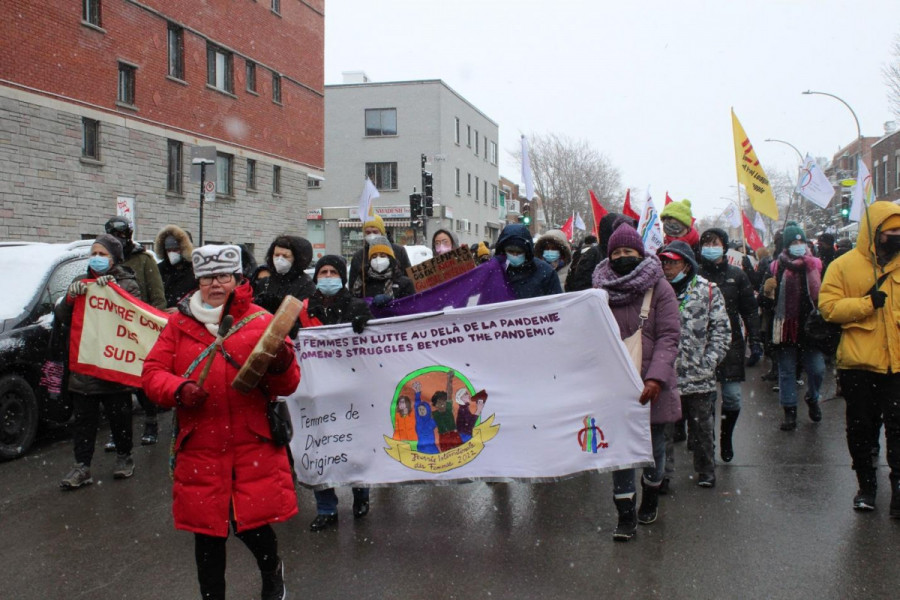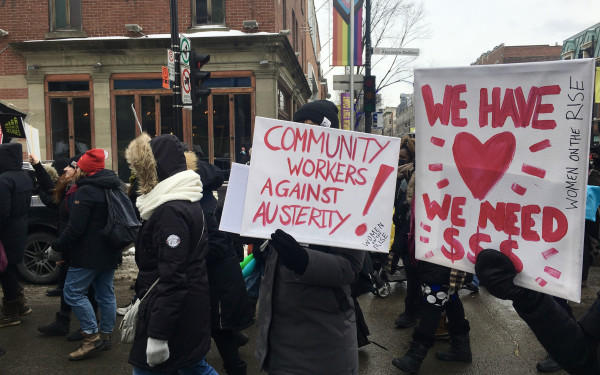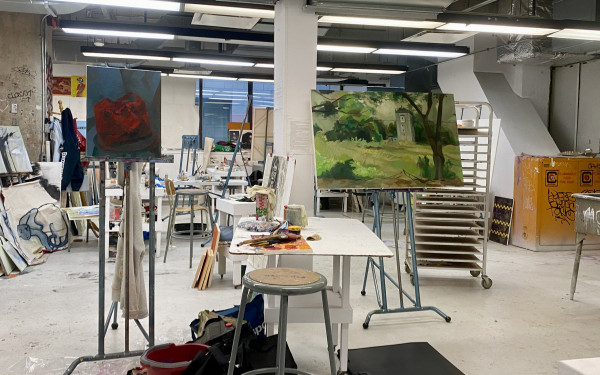The fight for immigrant women’s freedoms on International Women’s Day
Women of Diverse Origins continue to battle inequality against women of visible minorities
“Right to shout: Azadi! Right to walk: Azadi! Right to protest: Azadi!” The word in Urdu for ‘freedom’, was chanted in unison at the International Women’s Day march in the Parc Extension neighborhood on March 12.
Organized by the Women of Diverse Origins group, the protest brought together around 200 people and continued the decade-long tradition of yearly marches in light of International Women's Day.
The Aurat Azadi movement began in Pakistan in 2018 under circumstances of domestic violence, social inequality and patriarchal ideologies. Five years later, women from all around the globe, gathered in Parc Extension, inspired by the chant to protest the Quebec government’s inability to recognize systemic racism—especially among women of visible minorities—and its inaction towards the rise in domestic violence and femicides. The repressive Bill 21 was also spoken out against.
“Today, in Quebec, we are fighting for a woman’s right to choose what she should wear, which is ridiculous,” said Dolores Chew, a member of the South Asian Community Center which is affiliated with the WDO. “The gains that have been won still have to be fought for. It just takes a politician to come around and propose a piece of legislation and then the clock gets rolled back.”
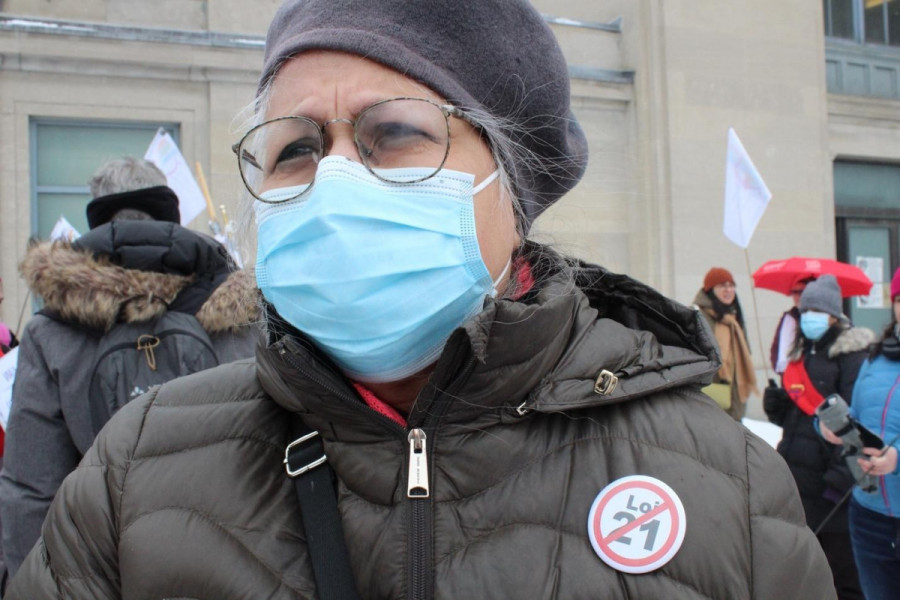
However, Chew believes the clock rolling back isn’t enough to make these women give up. Traced back to 2010, the marches organized by the WDO group have made a noticeable impact, according to Chew. “One of the things that has happened is that in the wider feminist community in Montreal and Quebec, there’s greater recognition of issues that also impact marginalized communities,” she said. “We cannot just be thrown under the bus… If all are not free, then we are not free.”
Chew explained being thrown under the bus is one of the main things holding Quebec back from properly listening to women of visible minorities. “We want official recognition that systemic racism exists. Unless you recognize it, then you can’t deal with it. It’s not a few bad apples, or somebody forgot and made a mistake… There also has been an increase in violence against women which needs to be seen.” She trusts one of the ways to remediate these issues, once they are recognized, is through education starting as early as the daycare level.
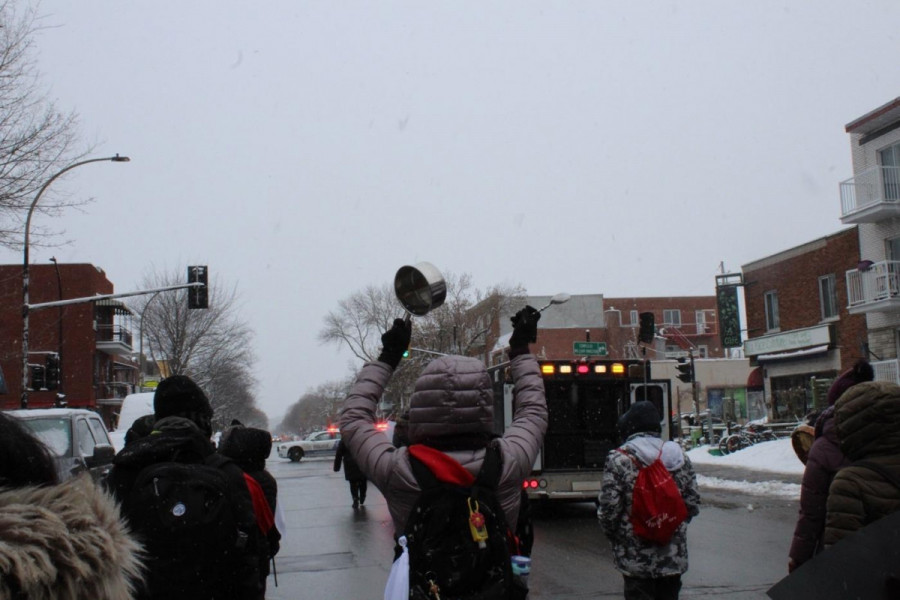
Amongst the shouts and explosion of sounds, Glavys Calvopiña, a contributor at the WDO, stood out by using her kitchenware as a way to protest the struggles she has faced as an immigrant woman of a visible minority.
“The organization is very important to me, because I feel like there isn’t a lot of representation of immigrant women and Women of Colour in other feminist organizations,” Calvopiña said. “Representation matters because as immigrant Women of Colour, we have different experiences in life. It makes sense that other women don’t understand all the barriers we face when it comes to employment and even housing, but it’s also why it’s important.”
There’s an overarching sensation that women like Calvopiña and Chew don’t have a place in societies like the one in Montreal, according to Calvopiña. Linguistic barriers such as being unable to find any type of care or help in a language other than French amplify this feeling. Calvopiña, who’s a recent immigrant from Ecuador, struggled to find the words before saying, “it’s not easy to find your place, to speak up. It takes a lot of effort and we don’t feel welcome.”
“It’s not easy to find your place, to speak up. It takes a lot of effort and we don’t feel welcome.” — Glavys Calvopiña
Efforts against the barriers to proper integration of Women of Colour in Quebec have been made for a long time. In fact, the WDO has been organizing such marches for over a decade and aspire to pass on the fight for social justice to the next generations.
“We all come from different parts of this globe: when you see the signs all around us, we are all circled together … Whether you’re from Chile, Mexico, the Philippines … all the communities have urgencies. We all stand together in unity and solidarity with each other,” said Wetʼsuwetʼen nation representative and activist Marlene Hale during her speech before the march.
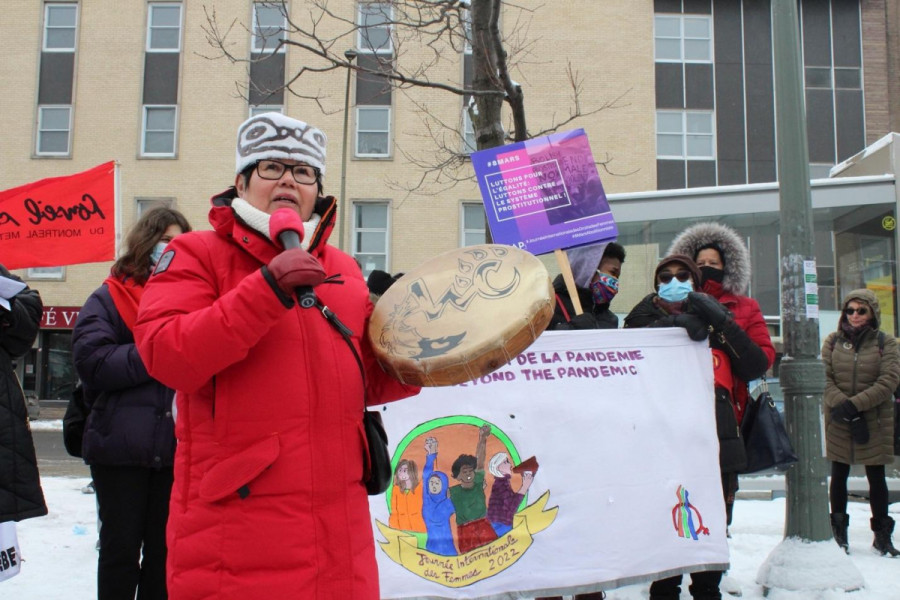
Hale travels often around Canada to generate support for her community as well as advocate for the rights of women and visible minorities. She finds that in times of inequality and struggle, the best thing to do is talk.
“When women like us share their pain and problems, we suddenly feel connected, like our own pain doesn’t seem so bad anymore. This is what drives us,” she said, gesturing over to her fellow colleagues in the WDO.
As the march continued, a final cry rose from the front of the crowd.
“Right to be: Azadi!”, said Chew, echoed by the women behind her.

